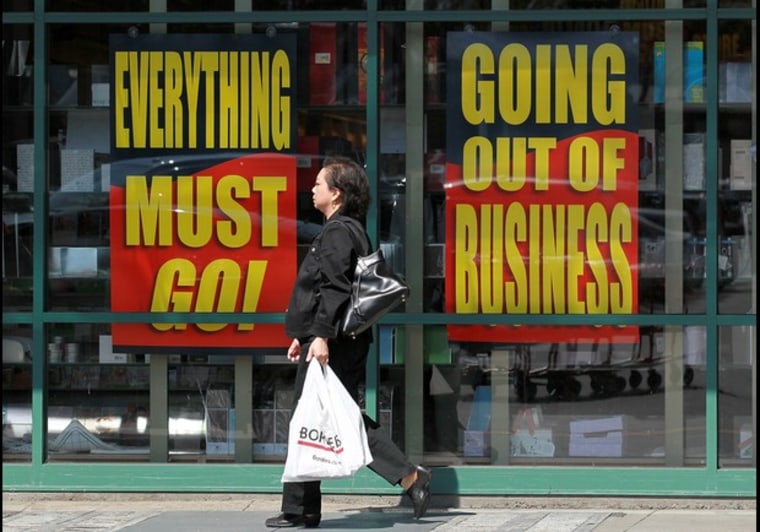Yes, the worst seems to be over for retailers. But that doesn’t mean things are great, or that there aren’t too many stores.
Holiday sales jumped 4.5 percent over 2010, thanks to a strong final push. The roughly 3,000 store closings announced by U.S. chains in 2011 was down considerably from the 5,000-plus announced in 2010, according to RetailTraffic, an industry publication.
Still, the business is a long way from where it was a few years ago. Sears is struggling. Big department stores like Macy’s and J.C. Penney are treading water, while major apparel sellers like Gap and Talbots whose offerings don’t match changing fashion preferences are losing market share and shrinking store counts.
Forbes.com slideshow: See the places where you might not shop this year
RetailTraffic posits that store closings could spike back up in 2012 as consumer electronic chains become the next to retrench amid price pressure from Wal-Mart and a lack of any new hot items. Meantime, store openings will likely come from the likes of Dollar Stores and Family Dollar, along with Wal-Mart.
“The extreme value guys,” says Howard Davidowitz, chairman of New York-based retail consultant Davidowitz & Associates. So which chains are shutting down the most locations?
Start with Borders, the bookseller that lost its battle with Amazon and Barnes & Noble for good in 2011, with the liquidation of its remaining 633 locations. It’s joined on our list by the other perennial struggler of recent years: Blockbuster, the movie rental outlet purchased out of bankruptcy last spring by Dish Network that announced more than 400 closings in 2011, close to a quarter of its stores. That leaves the company with roughly 1,300 stores still operating, but Davidowitz says the dynamics of the movie rental industry would make it a surprise if Blockbuster is still operating in five years. Stay tuned. (Note: store closing figures are based on announced closures in 2011, not all of which are necessarily carried out right away).
Forbes.com: Why retailers succeed or fail
Apparel is also a tough grind, particularly for those chains whose merchandising mix doesn’t hit consumer tastes right on. Gap announced 189 store closings last fall, about a fifth of its flagship locations, the latest segment of a downsizing plan that began in 2007 and is expected to be fully implemented by 2013. Gap is shifting more merchandise to its outlet stores, which are increasing in number. Talbots, traditionally a seller of apparel to mature women, is now planning to reduce its fleet by a net 100 stores (18 percent) after its attempt to expand its customer base to younger women didn’t meet expectations.
Another segment that took a hit during the recession: casual dining. Friendly’s, which declared bankruptcy in October, said it’s shutting down 63 of its 487 stores. Friendly’s biggest problem: hanging on to the same basic menu for years as creative competitors like Panera Bread hit the scene. The owner of Friendly’s, private-equity firm Sun Capital Partners, is reportedly looking to sell.
Sometimes shutting down underperforming units isn’t a sign of problems. Abercrombie & Fitch, which is on pace to grow revenue to $4.2 billion for the 12 months ending Jan. 31 from $3.5 billion a year earlier, announced plans in 2011 to close down a net 49 stores, about 15 percent of its total.
Forbes.com: Yes, the new J.C. Penney can succeed
“In this case the closings are a sign of strength,” says Davidowitz. “You should always be culling your good stores and closing your bad ones.”
Forbes.com: Is this the death blow to Sears?
Forbes.com: Wal-Mart’s wrong-headed reorganization
Forbes.com: A new retail chief at Apple. Another model for retailers to emulate
